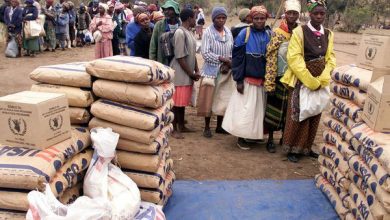Census 2022: Equipment shortage delays counting in Mat North

The 2022 population and housing census enumeration exercise was delayed in some parts of Tsholotsho, Matabeleland North due to a shortage of data capturing equipment.
The census began on April 21 and will run until April 30, 2022.
The process has been digitised with enumerators using electronic gadgets to capture information.
Speaking to CITE, some enumerators said they spent three days waiting to receive tablets.
“We spent three days waiting for tablets to start the census in wards 12, 13, and 22 (Tsholotsho Centre and surrounding areas) in Tsholotsho, we were told that they were in Bulawayo and the few available tablets were given to the supervisors,” said the source.
The enumerators only received the tablets yesterday (Sunday).
Responding to the matter during a press conference on the update of the 2022 population and housing census, Zimbabwe National Statistical Agency (ZIMSTAT) Director-General Taguma Mahonde said the shortage could be attributed to large gatherings by churches over the Easter holidays.
“What basically happened is that like we were saying on the night of the 20th I will give an example of Mashonaland Central in Mazdiwa, there is a church, I don’t recall the specific name, there was a large gathering, so on the night of the 20th, we had to make sure that we deal first with this church. We had to withdraw our enumerators from Shamva District because I think they were about 10 000 or so, so the night of the 20th, the whole of Shamva there were no enumerators, they were enumerating the congregates, it took quiet into the morning,” said Mahonde.
“And when we were about to finish, some of our enumerators in close by areas also discovered that another part of this church had also another gathering elsewhere, so you see from this point A they had to go to point B and continue with enumeration, so that was a day lost as it were.”
He said most tablets had to be deployed to areas with large gatherings.
“This was happening in most areas, you find that it wasn’t just the enumerators who were moved, it will be the tablets because we had a reserve, and the reserves at times would not be having the tablets, so it was the tablet that would move. When the census operation was over, the tablets will then go back to the districts, in this case, the enumeration areas that they were supposed to work, so this partly explains the delay in tablets in certain areas,” said Mahonde.
He, however, said they have managed to resolve the challenge.
Meanwhile, Mahonde also advised that all the questions asked by enumerators are important as they are used for statistical purposes and are confidential.
“As already been said in various fora, our questionnaire was looking at demographic characteristics, issues to do with education, functioning labour force, fertility, housing characteristics and living conditions, emigration and death in the households and as usual I would like to emphasize that all the responses collected during census are confidential and used for statistical purposes only,” he said.
He also added that they have resolved the situation in areas where there were flooded rivers, particularly in Matabeleland North and the Midlands.
“As is the case with the major operation there are bound to be challenged, we hired vehicles which we have allocated to the provinces however we still have some challenges in other provinces because of the rains for example in Matabeleland North and Midlands, we have had challenges of flooded rivers which have restricted our access, however, we have managed to deal with those issues although it has been done through longer routes and so on, We ensure that our enumerators have access to those areas,” said Mahonde.
In addition, the Director-General for Zimstat said they are also seized with ensuring that the enumerators who have connectivity challenges are connected.
“Ladies and gentlemen, you know our network connectivity is not the same throughout the country so you will find that in urban areas network connectivity has not been a challenge and as a result, data collected has been easy to sink to our savers, however when we go to remote areas, connectivity becomes a challenge, so we are currently busy making sure that our enumerators who are in areas where there is no connectivity we take them to areas where there is connectivity so that they can sink their data.”






